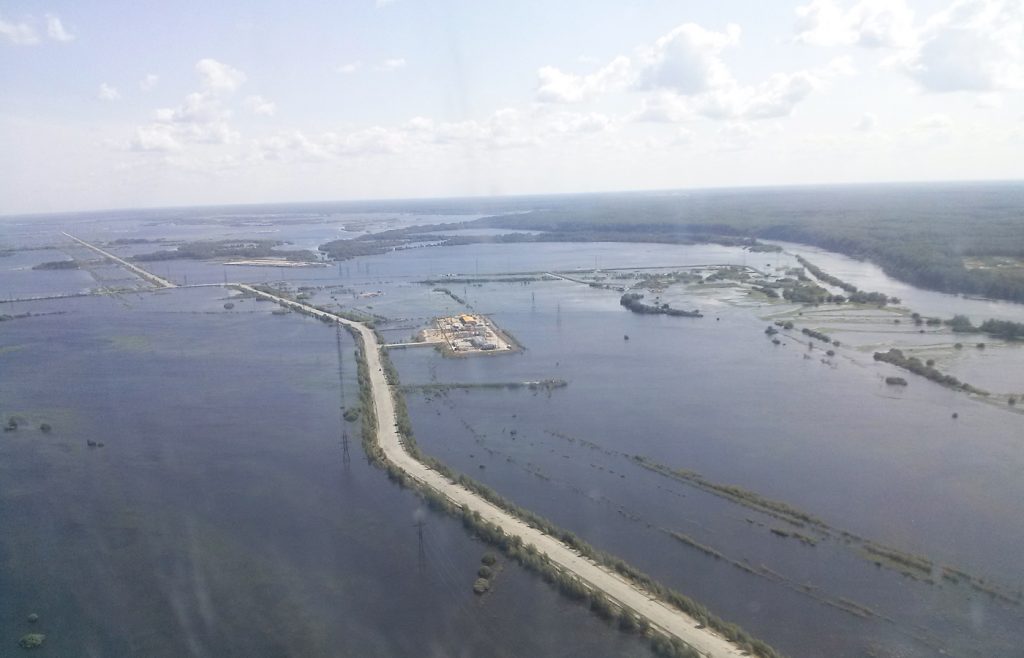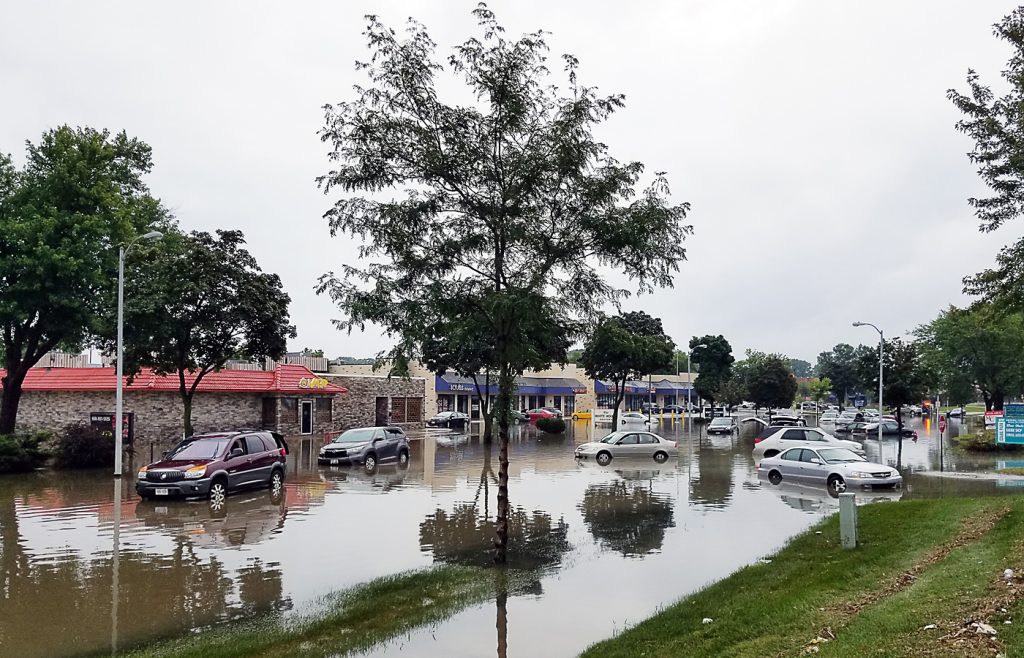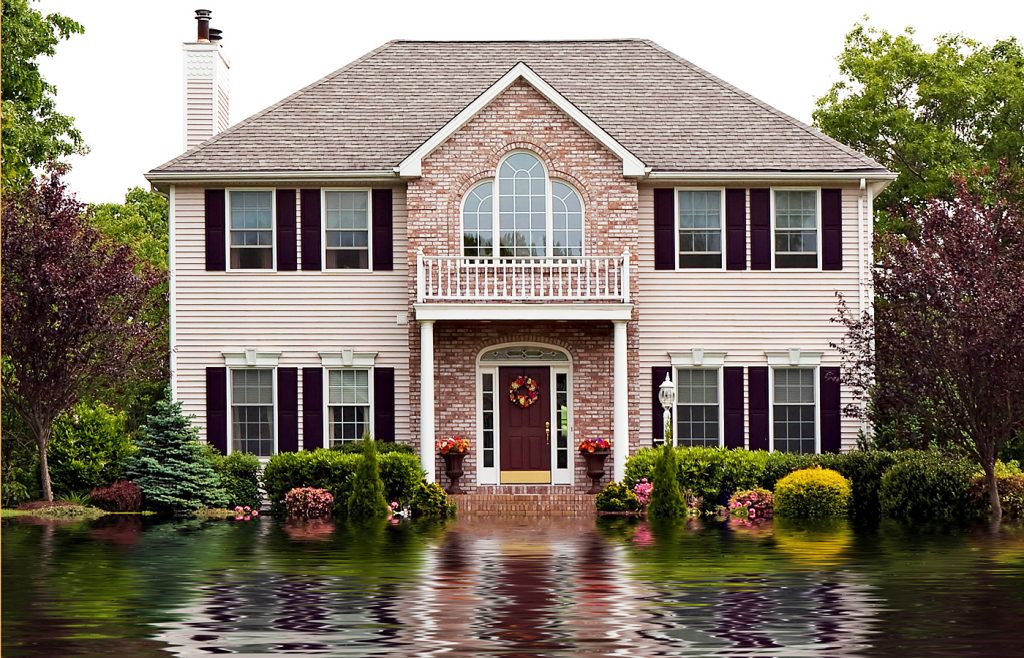
On Tuesday, July 9, Climate Action Iowa will present a multi-media presentation on the causes and nature of the climate crisis, with an emphasis on what we can do right now to avert the coming dangers. The presentation uses material from Al Gore’s Climate Reality program and other sources to create a truly riveting plunge into the challenges we face and the opportunities to make a difference.
Thom Krystofiak (who was trained by Gore) and Mary Tarnoff (a co-founder of Climate Action Iowa) have been making presentations around the state, and they will lead the discussion.
This year in Iowa, we’ve seen terribly flooded farms and flooded cities. The damage afflicting the Midwest has brought the threat of catastrophic climate change closer to home. The questions grow more urgent: “Is this the new normal? Will things continue to get worse?” As bad as it has been for those affected by the floods, other impacts around the world make the recent chaos in our region pale in comparison.

Scientists grow bolder in their projections about what the future holds. They predict unprecedented numbers of climate refugees (created by the simultaneous impacts of high heat, droughts, and flooding) which will incite geopolitical instability; the loss of drinking water, species extinction, a rise in sea level that could fully inundate some of the most populous regions on earth, the spread of tropical diseases to temperate regions, and much more.
David Wallace-Wells opens his best-selling book The Uninhabitable Earth with this warning: “It is worse, much worse, than you think.”

Neither a sense of doom nor a desire to turn away from the problem will help at this time. We can transform a sober evaluation of what lies ahead into inspiration and commitment to take action to avert the dangers faced by this, our only home.
What can we do in the face of these urgent challenges? The first step is to become well-informed. The next step is to talk about what we have learned, to bring this crisis to the forefront of awareness and thereby to the top of our political agendas. There is no time to lose.
The presentation begins at 7:30 p.m. at the Fairfield Public Library, 104 W. Adams, and admission is free.
